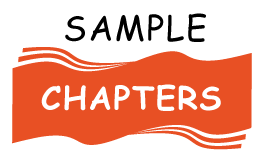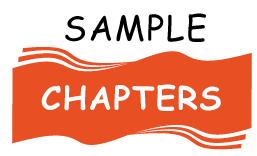The Power of Perseverance: Completing a 10-Year Book Writing and Publishing Journey

Introduction
In today's world, writing and publishing a book might seem like an unattainable dream for those who haven't had the privilege of formal education. However, with determination, perseverance, and a structured approach, even non-academic and uneducated individuals can achieve this goal. This article narrates the journey of completing a 10-year project to write and publish a book, providing a step-by-step guide to inspire and assist others on a similar path.
Setting the Vision
The first step in any long-term project is to set a clear and achievable vision. For our project, the vision was to write a compelling non-fiction book that shares personal experiences, insights, and knowledge accumulated over the years. This vision served as the guiding star throughout the journey.
- Define Your Purpose
- Identify why you want to write a book. Is it to share your story, impart knowledge, or achieve a personal milestone?
- Write down your purpose and revisit it regularly to stay motivated.
- Set Realistic Goals
- Break down the 10-year timeline into smaller, manageable phases.
- Set yearly, monthly, and weekly goals to ensure steady progress.
Acquiring Basic Literacy and Writing Skills
For those who are uneducated, the initial phase involves acquiring basic literacy and writing skills. This step is crucial and requires patience and dedication.
- Enroll in Literacy Programs
- Join community literacy programs or online courses to learn reading and writing.
- Practice daily to build a strong foundation.
- Read Extensively
- Read a variety of books, articles, and other written materials to improve vocabulary and comprehension.
- Analyze the writing styles and structures used by different authors.
Self-Educating and Self-Taught Writing Goals
Becoming a self-taught writer is a vital part of this journey. It requires a proactive approach to learning and self-discipline.
- Utilize Online Resources
- Take advantage of free online resources such as writing tutorials, blogs, and YouTube channels dedicated to writing.
- Join online writing communities and forums to seek advice and feedback.
- Attend Workshops and Webinars
- Participate in writing workshops and webinars to gain insights from experienced authors and writing coaches.
- Apply the knowledge gained to improve your writing skills.
- Practice Writing Regularly
- Write regularly, even if it's just a few paragraphs a day. Practice is key to improvement.
- Experiment with different writing styles and genres to find your unique voice.
Developing the Book Concept
With basic literacy skills in place, the next step is to develop the concept for the book. This involves brainstorming ideas, conducting research, and outlining the book's structure.
- Brainstorm and Research
- Jot down all potential ideas and select the one that resonates most with your vision and purpose.
- Conduct thorough research to gather relevant information and insights.
- Create an Outline
- Organize your ideas into a structured outline with chapters and sections.
- Ensure the outline has a logical flow and covers all key points.
Writing the First Draft
Writing the first draft is a significant milestone in the book-writing journey. It's a process that requires discipline and a willingness to embrace imperfection.
- Set a Writing Schedule
- Dedicate specific hours each day or week to writing.
- Stick to the schedule consistently to build momentum.
- Write Without Self-Criticism
- Focus on getting your thoughts down on paper without worrying about grammar or style.
- Allow yourself to write freely and make mistakes.
Revising and Editing
After completing the first draft, the revision and editing phase begins. This step involves refining the content, improving clarity, and correcting errors.
- Self-Review and Feedback
- Review your draft and make initial revisions.
- Seek feedback from trusted friends, family, or mentors.
- Hire a Professional Editor
- If possible, hire a professional editor to provide detailed feedback and corrections.
- Implement the editor's suggestions to enhance the quality of your manuscript.
Navigating the Publishing Process
Publishing a book can be daunting, but understanding the process can make it manageable. There are various paths to publishing, including traditional publishing and self-publishing.
- Research Publishing Options
- Learn about different publishing routes and choose the one that best fits your goals and resources.
- Consider self-publishing for greater control or traditional publishing for wider reach.
- Prepare a Manuscript Submission
- If opting for traditional publishing, prepare a compelling query letter and book proposal.
- Submit your manuscript to literary agents or publishers.
- Self-Publishing Steps
- For self-publishing, choose a reliable platform (e.g., Amazon Kindle Direct Publishing).
- Format your manuscript, design a cover, and upload your book for publication.
Marketing and Promotion
Once the book is published, effective marketing and promotion are essential to reach your target audience and achieve success.
- Build an Online Presence
- Create a website, blog, and social media profiles to promote your book.
- Engage with your audience through regular updates and interactions.
- Utilize Book Promotion Services
- Leverage book promotion websites and services to increase visibility.
- Consider offering free sample chapters or limited-time discounts to attract readers.
- Seek Reviews and Testimonials
- Encourage readers to leave reviews and testimonials on platforms like Amazon and Goodreads.
- Use positive feedback to build credibility and attract more readers.
Conclusion
Completing a 10-year book writing and publishing project is a testament to the power of perseverance and dedication. By following these steps, anyone, regardless of their educational background, can achieve the dream of becoming a published author. Remember, the journey may be long and challenging, but the satisfaction of holding your published book in your hands is a reward worth every effort.
Embark on your journey today, stay committed to your vision, and let your story inspire others.



